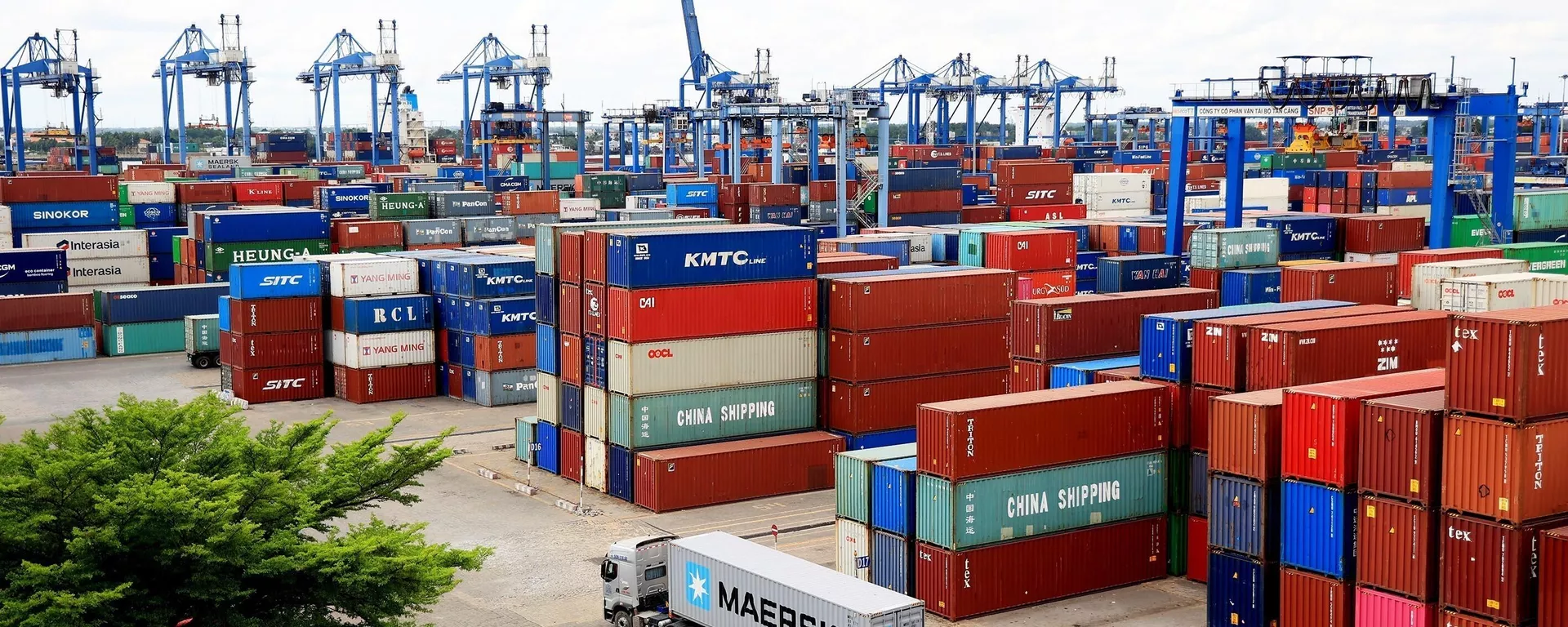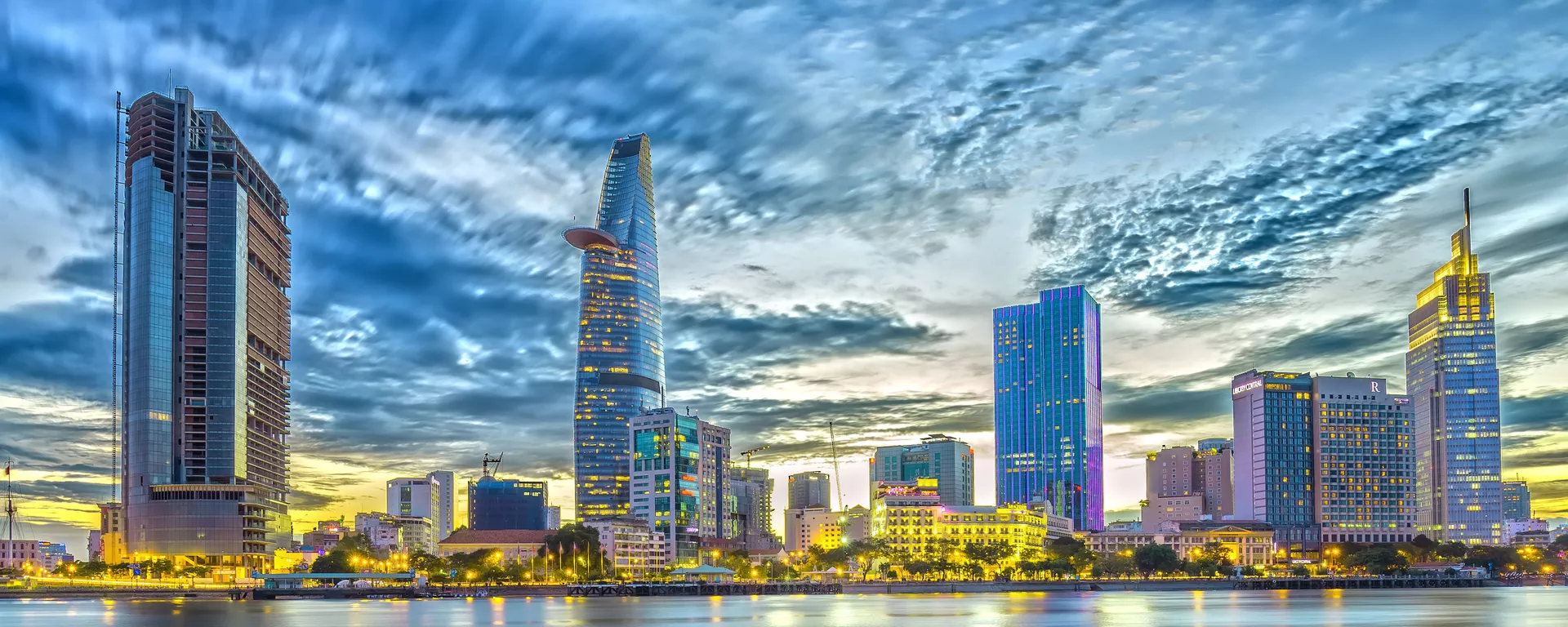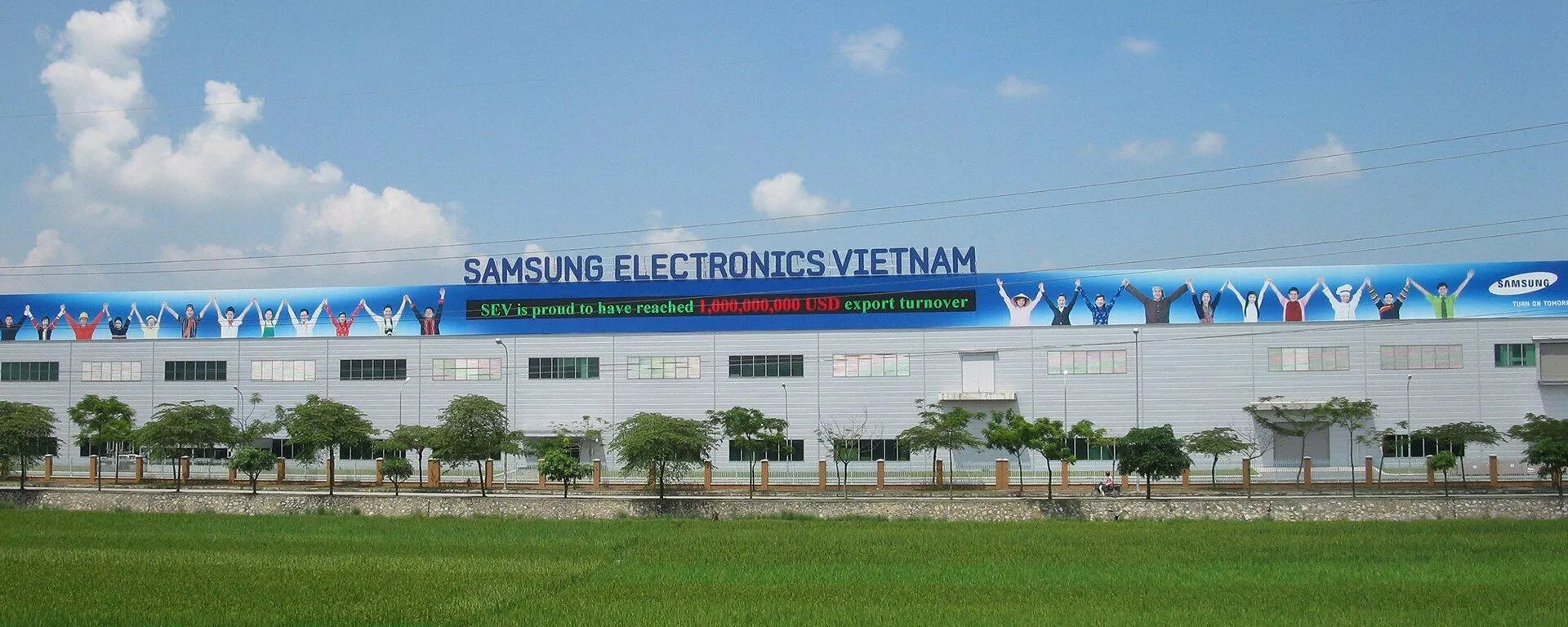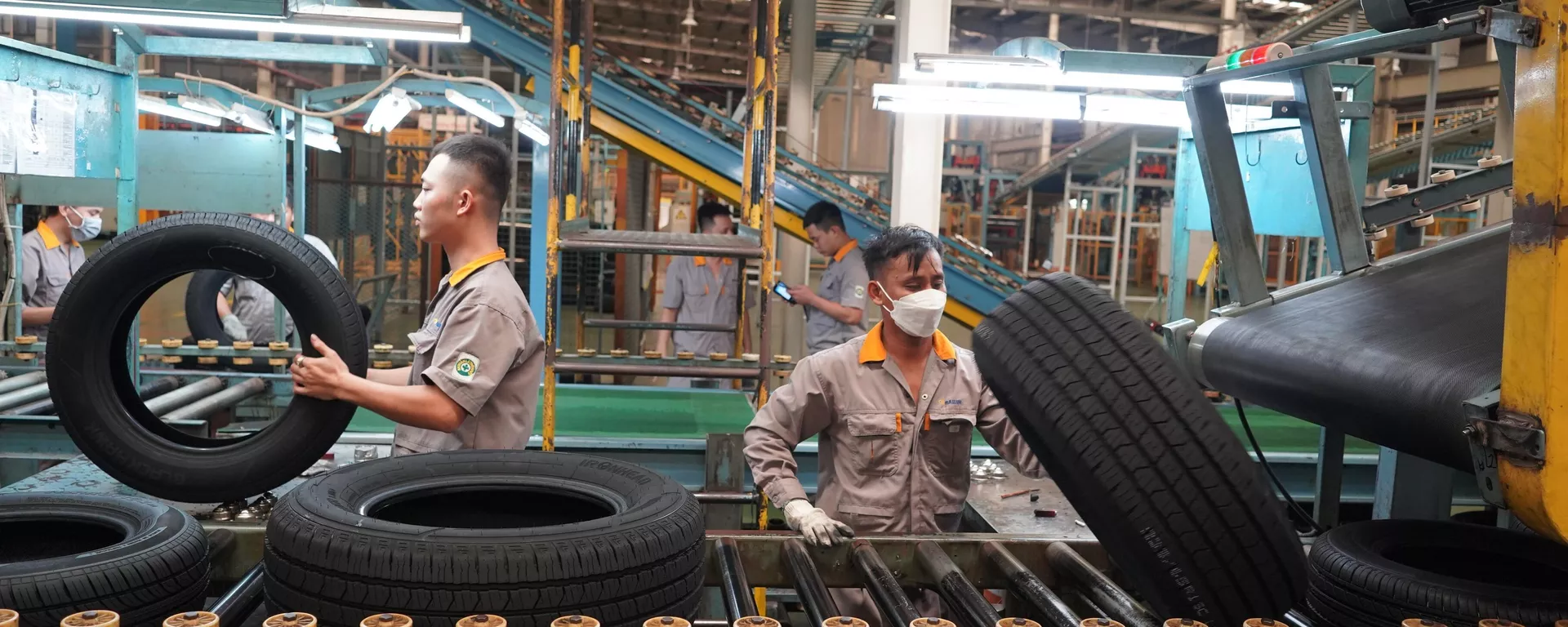INDOCHINA INTERNATIONAL CONSULTING CO., LTD
HO Add: 62L/36 Nguyên Hồng, Ward 11, Bình Thạnh District, HCMC - Vietnam
Biz Office Add: #48 Road No 11, Quarter 6, Hiệp Binh Chánh Ward, Thủ Đức, HCMC - Vietnam
®Source: http://viipip.com should be clearly quoted for any use of information extracted from our website.
Publication permit No: 60/GP-TTĐT , April 05, 2010.

Chinese investors flock to Vietnam: Revealing the requirements of American capitalists
Date: 7/24/2023 10:46:01 AM
China has surpassed Korean, Japanese or Singaporean investors... to lead the number of investment projects in Vietnam. However, in addition to the advantages that this trend brings, there are many challenges that Vietnam has to face.
According to experts, at this point, Vietnam does not need to attract FDI at all costs, but needs to control technology transferred from China to Vietnam, saying no to projects with outdated technology, labor-intensive, and polluting the environment.
China leads the number of investment projects in Vietnam
Recently, The Saigontimes reported that HKC Overseas Limited (China) has received an investment certificate from the Dong Nai Industrial Parks Management Board (DIZA) to build a factory in this province.
The project has a total registered investment capital of up to 10 million USD, is expected to be deployed in Nhon Trach 2 - Loc Khang Industrial Park, specializing in the production of screens, televisions...
The appearance of HKC Overseas Limited in Dong Nai has extended the list of Chinese investors who have increased their investment in Vietnam over the years. In the first 6 months of 2023, the number of projects from the country of billions of people even topped the list of licensed investment in Vietnam.
Accordingly, according to the Ministry of Planning and Investment, in the first half of 2023, the whole country had more than 1,290 FDI projects granted investment registration certificates, an increase of nearly 72% over the same period last year.
Among them, investors from China have surpassed countries with a lot of investment in Vietnam such as Korea, Japan, or Singapore ... to lead the number of investment projects, accounting for 18% of the total number of newly licensed FDI projects in the first half of this year. Last year, this position was held by South Korea, when it accounted for 20.4% of the country’s new FDI projects.
In fact, Chinese enterprises are increasingly pouring capital into Vietnam. And yet, Chinese enterprises have continuously increased capital and expanded production and business.
For example, Yadea Group, which develops and manufactures Chinese electric two-wheelers, recently decided to invest in a new project in Bac Giang province after more than four years in Vietnam. With a total registered capital of 100 million USD, the project will be built on an area of more than 23 hectares, with an expected capacity of 2 million vehicles per year.
Yadea also wants to continue to open a Research and Development Center (R&D) in Bac Giang province; encourage satellite businesses to cooperate to develop products.
Vietnam is the ideal destination, why?
Many foreign investors in China are also constantly moving their investments to other countries, in which Vietnam is also considered an ideal destination.
The shift of FDI inflows in the direction of "China +1" continues to take place as Sputnik mentioned earlier. Many foreign corporations do not put all their investment capital in China but want to disperse and diversify their investments to other countries, in which Vietnam is a popular choice in Southeast Asia.
In fact, the shift of investment out of China began more than 10 years ago, from Japanese and Korean investors who have factories and workshops located in China... When the US-China trade conflict broke out, some investors promoted the relocation or diversification of production workshops to Southeast Asia (ASEAN), in order to avoid tax policies and trade protectionism between the two powers.
The Covid-19 pandemic then led to a breakdown in the supply chain, causing capital flows to continue to shift to ensure the supply chain did not repeat the disruption like at the beginning of the pandemic.
With a strategic location adjacent to China, a large source of goods and raw materials and a large market, Vietnam is expected to help investors reduce transportation costs and stably connect the supply chain in China. Therefore, Vietnam is the first choice in ASEAN in this trend.
In addition, the US-China trade tension has not shown any signs of improvement. The US currently taxes goods from China at a very high level, imposing import duties of up to 25% on many imported goods, forcing businesses to find other markets outside of China to consume goods that cannot be exported to the US, as well as increase investment abroad to cope with US measures.
Therefore, 15 FTAs (Free Trade Agreements) that are in effect with Vietnamese manufactured goods entering markets with very low or zero tax rates will be a great opportunity for investors.
Factors such as cheap labor costs, stability in the socio-political and macro environment... are recognized by Chinese enterprises, seeking opportunities to expand the scale of two-way trade, and increase direct investment projects.
It can be seen that production activities concentrated only in China is no longer a safe solution for manufacturers, including enterprises and investors of this country. The reason is because China’s position as the world’s factory is still there, but not as strong as before, according to the Saigon Economic magazine.
Political factors: American customers want it
The South China Morning Post reported that businessman Norman Cheng, owner of the world’s leading helmet maker Strategic Sports, said that moving operations outside of China has become a vital solution for businesses.
Mr. Cheng plans to open a smart factory in Vietnam next year with an investment of about 30 million USD. This will be a replica of the factory he recently opened in Guangdong province, China.
This plan was proposed by Strategy Sports after a long time of consideration. Mr. Cheng affirmed that the cause is not a concern about production capacity. Accordingly, Strategy Sports has a lot going on in China - where the company’s first automated factory went into operation more than two years ago and capacity is increased by millions of helmets each year.
Strategy Sports’ decision comes from a strategic effort to hedge against growing political risks and a desire to retain Western clients.
According to Mr. Cheng, many of the company’s foreign customers are increasingly worried and cautious about the supply chain. They are eager to hedge risk by sourcing from many other countries outside of China.
“If only in terms of production capacity, we won’t have to build a new factory in Vietnam, but from a geopolitical perspective, we have to. American customers have urged us to move production to Vietnam. Since they committed to order from Vietnam, we decided to come to this country," - Mr. Cheng told the South China Morning Post.
However, even if there are plans to expand production to other countries, businesses have no intention of leaving China. In contrast, although the opening of the factory in Guangdong was delayed by nearly two years due to Covid-19, the facility still played an important role. Strategy Sports chose Guangdong because it has built up complex industrial clusters over the decades.
In Vietnam, the factory that Mr. Cheng plans to build will be highly automated, allowing 400 workers to produce about 8 million helmets a year. This plant is also oriented to use green energy with solar panels and rainwater recycling system.
Beware lest it become the ’backyard’ of Chinese enterprises
According to experts, the wave of shifting production from China to Vietnam is both an opportunity but also a challenge.
From the perspective of simply attracting investment as well as for industrial real estate developers in Vietnam, this is a good sign. When the whole country opens to welcome FDI investment, infrastructure enterprises will collect land rent, with projects that will have investment capital disbursed, thereby creating many jobs, contributing to the economy, taxes into the budget...
However, many experts are also concerned when Chinese investors increasingly invest in Vietnam over the past time.
Specifically, if Chinese investors mainly bring in outdated equipment, their workers and experts, this will be a challenge. Keeping the US-China trade tension, Vietnam will risk being turned into a "base" for Chinese businesses to cheat on the origin of goods. This will lead to the risk that Vietnamese goods will be subject to high punitive taxes from the US and European countries.
Currently, the high export of some Vietnamese wooden products to the US market in recent years has been suspected by this country that the Vietnamese wood industry is becoming a "hidden" investment destination for some foreign and Chinese investors to avoid taxes, leading to many trade risks. This makes domestic enterprises bewildered because it has brought many risks to Vietnam’s wood exports.
A representative of the local Wood Association noted that there are cases where some investors pouring capital into this industry of Vietnam only perform simple steps, do not invest in standard machinery lines for long-term operation, but mainly bring products from China to assemble and then export.
In addition, there is a phenomenon that foreign investors acquire domestic wood enterprises to export to the US and other markets.
However, in order to give concrete evidence of how many businesses invest in underground or in shadow, it is necessary to involve many units, management agencies and enterprises in the industry.
The trend of shifting investment flows out of China and many developed countries to take advantage of signed Free Trade Agreements (FTAs) is becoming more and more obvious.
The increase in origin preferences for countries participating in the agreement and tightening of imports, high taxes on products of non-FTA countries makes businesses and investors have to calculate how to enjoy preferential origin.
In fact, goods from Vietnam have penetrated many large markets, creating competitive pressure with manufacturing industries in the importing country. This makes the importing country’s manufacturing industries require the government to use trade remedies such as anti-dumping, anti-subsidy, self-defense to protect themselves.
Therefore, Vietnamese export enterprises are likely to become the subject of investigation and application of trade remedies.
Experts said that it is necessary to study additionally the weak legal regulations to both attract FDI and avoid risks to the economy and national security. In addition, creating a favorable business environment, ensuring socio-economic development.
Up to this point, Vietnam does not need to attract FDI at all costs, but needs to control technology transferred from China to Vietnam, absolutely prevent projects with outdated technology, labor-intensive and polluting the environment.
In addition, Vietnam also needs to be careful not to become the world’s processing factory, avoiding the case that Chinese enterprises "borrow" production in Vietnam to export to the US.
(Source:Sputniknews)
- FDI capital continues to pour into Vietnam (6/11/2025 1:20:33 PM)
- Thanh Hoa receives good news: Preparing to have an additional industrial park of up to 470 hectares, creating jobs for nearly 30,000 people (6/11/2025 1:15:09 PM)
- Industrial Park Real Estate: Waiting for the New Generation of FDI (6/11/2025 1:10:15 PM)
- A wealthy Vietnamese city will have two special economic zones after the merger (6/11/2025 1:04:42 PM)
- 30 billion USD capital FDI in Việt Nam by 2025, a series of "ông big" races to expand the land fund (6/11/2025 12:55:26 PM)
- the 2nd largest city in the North will start construction on an international economic zone (6/11/2025 12:50:20 PM)
- Japanese giant Sumitomo continues to want to build an industrial park in the countrys fourth smallest province. (6/11/2025 12:40:45 PM)
- 3 foreign corporations want to invest billions of dollars in Ba Ria - Vung Tau (6/11/2025 12:34:30 PM)
- Lotte Group member starts construction of nearly 1,000 billion VND logistics center in the province with the most industrial parks in Vietnam (6/11/2025 12:33:26 PM)
- Forming a regional center for manufacturing spare parts and components (6/11/2025 12:24:08 PM)
- Vietnams first wafer factory is about to start construction (6/11/2025 12:19:09 PM)
- Dong Nai attracts foreign investors (6/11/2025 12:13:27 PM)
- Tay Ninhs largest industrial park welcomes a $150 million high-end knitted fabric factory project (6/11/2025 12:11:00 PM)
- (6/11/2025 12:09:10 PM)
- Vietnam will become a destination for Chinese investors in the future (11/6/2023 1:03:19 PM)

- FDI capital continues to pour into Vietnam
- Thanh Hoa receives good news: Preparing to have an additional industrial park of up to 470 hectares, creating jobs for nearly 30,000 people
- Industrial Park Real Estate: Waiting for the New Generation of FDI
- A wealthy Vietnamese city will have two special economic zones after the merger
- 30 billion USD capital FDI in Việt Nam by 2025, a series of "ông big" races to expand the land fund














 ADB: Vietnam’s 2009 GDP growth to be highest in South East Asia
ADB: Vietnam’s 2009 GDP growth to be highest in South East Asia MGM Grand Ho Tram: Vietnam’s First ‘Las Vegas Style’ Integrated Resort
MGM Grand Ho Tram: Vietnam’s First ‘Las Vegas Style’ Integrated Resort Nha Trang’s Twin Towers project licenced
Nha Trang’s Twin Towers project licenced Foreign investors still have good opportunities in Vietnam
Foreign investors still have good opportunities in Vietnam Sierra Wireless gets a foot in Vietnam’s ICT market
Sierra Wireless gets a foot in Vietnam’s ICT market